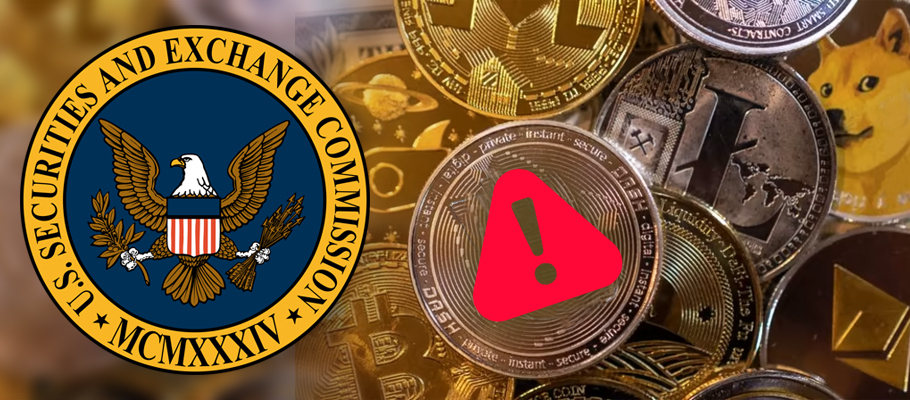
Published: January 25th, 2023
American crypto firms operating in the country’s top financial jurisdiction were warned this week that they need to manage their customers' digital assets with greater care.
In the wake of the still-unfolding FTX scandal, the New York Department of Financial Services (NYDFS) published an open letter to the industry outlining how investor assets should be kept separate from company funds. The letter also included guidelines for custodians, and explained the necessary disclosures that firms need to make when keeping custody of digital assets for clients is part of their business model.
NYDFS took the action as federal prosecutors apply more scrutiny to collapsed crypto trading exchange FTX and its controversial founder Sam Bankman-Fried. Bankman-Fried, or ‘SBF’ as he is known colloquially, is accused of misusing billions of dollars in customer assets and funneling them from the exchange to fund dodgy trades at his recently shuttered hedge fund.
‘As stewards of customer assets, crypto companies that act as custodians need to have rigorous processes in place that follow those relied on by traditional financial services firms,’ the NYDFS letter said.
The role of asset custodians in finance is to ‘hold on’ to customer assets for safe keeping. They could be funds, bonds, equities, or cryptocurrencies. In all cases custody has to be executed in a secure and transparent manner.
The new NYDFS guidelines are even more specific and provide detailed guidance on how digital assets should be handled.
Crucially, the agency said custodians must keep customers’ digital assets completely separate from any assets that belong to the custodian itself. In crypto terms this could mean recording the assets both on-chain and on the custodian’s own books, but maintaining appropriate records to avoid double counting.
The agency also said that assets under a custodian’s control should only be held for the purpose of safekeeping. Specifically, there should not be a debtor-creditor relationship between custodian and customer when possession of a digital asset is transferred.
Custodians in New York are also required to give customers written disclosures that clarify what the custodial arrangement means and how the custodian operates. Disclosures should explain how the custodian ‘segregates and accounts for and digital currency held in custody,’ and clarify the customer's ‘retained property interest in it.’
Back in July the Financial Stability Board (FSB), a G20 entity charged with monitoring financial activity in the world’s top-20 economies, announced a coming proposal that will lay out new 'robust regulation and supervision’ for cryptocurrencies.
A report scheduled for October will be shared with G20 finance ministers with a proposed set of new rules to govern and supervise crypto assets, including so-called stablecoins.
An FSB press release said that digital currencies are evolving rapidly in a tumultuous environment marked by extreme volatility. 'Despite these worries, cryptocurrencies are becoming increasingly integrated into the traditional financial system, exposing investors to new risks.’
The FSB is worried, it says, about the potential for one market failure to negatively impact participants in the wider crypto ecosystem. ‘Investors can suffer huge losses while risks are transmitted to other parts of the system and market confidence is damaged.’
Crypto market watchers saw this as a veiled reference to Terra’s dramatic failure in early May of 2022. The collapse of the Terra ecosystem triggered a liquidity crisis and sent several well-known crypto finance firms and hedge funds into bankruptcy.
Though the organization monitors the financial services industry closely, the October crypto proposal will mark a new chapter for the FSB. Up until now it has played a background advisory role, and any recommendations to G20 ministers and bankers have been made outside the public sphere.
In May, pro-crypto Portugal became the latest country to reboot its financial services rules and clamp down on crypto activity. The shift from pro-crypto to crypto-curious is significant, since Portugal had become a haven for blockchain and crypto innovation.
All that changed when the country's finance ministry did an about-face and announced that all crypto assets in the country would be subject to capital gains taxes.
Previously the government took a hands-off approach to cryptocurrency transactions, treating them as cash exchanges and effectively excluding them from capital gains taxes by definition.
Crypto trades are now taxable at 28 per cent. That quickly shredded Portugal’s reputation as one of the most attractive places on the planet for crypto projects and investments.
Given the level of tech and private investment crypto has attracted to the country, Portuguese finance officials were keen to avoid being seen as suddenly anti-crypto. The government said it was simply regulating crypto as it had always planned to. It simply wanted to see how other countries were adapting their tax and regulatory regimes and make sure Portuguese rules were coordinated with others.
In practice that would mean mimicking how other countries address crypto-trading profits as capital gains. New Zealand’s tax authority, for example, published a warning to crypto holders in April saying anyone who had not disclosed taxable earnings from the sale of crypto assets could be penalized under the law.
In September 2022, just hours after the merge event that saw Ethereum move to a proof-of-stake (PoS) mechanism, SEC Chair Gary Gensler told the US Senate Banking Committee that the transition could re-define the blockchain in the government's eyes as something more akin to a security than a technology platform.
Gensler’s view is that staking assets to a crypto network in exchange for passive rewards could be seen as proof under the so-called Howey Test that an asset qualifies as a security. So far, the SEC hasn’t taken an official stance on Ethereum under Gensler’s reign, though leadership within the agency had previously suggested that Ethereum was so decentralized that it couldn’t be classified as a security.